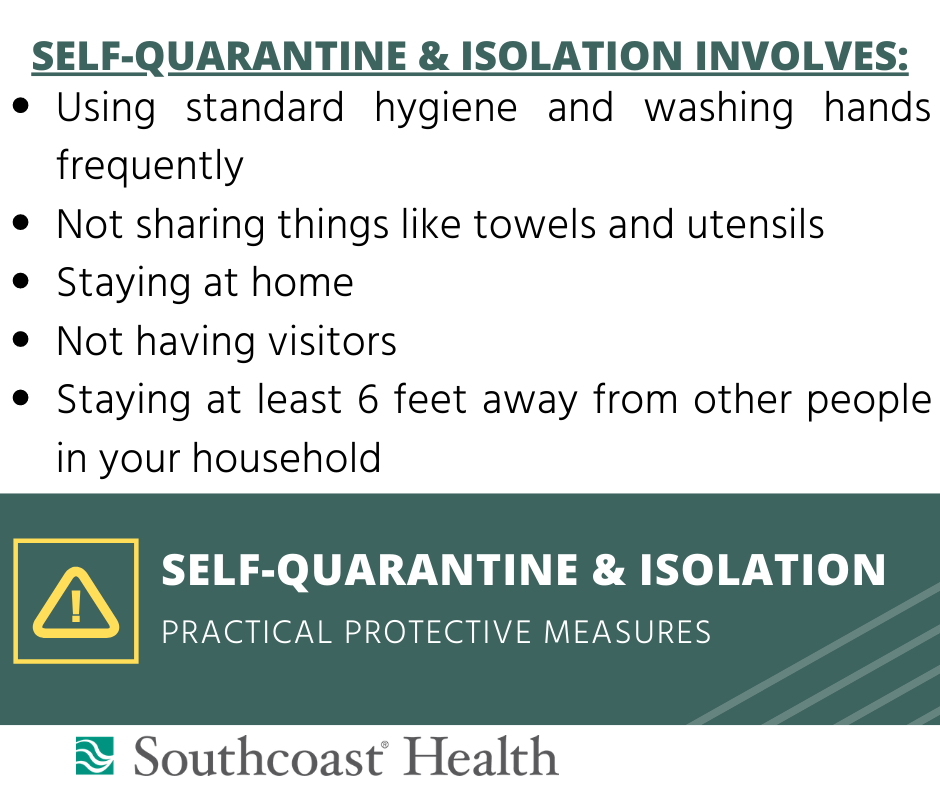
People who have been exposed to the COVID-19 coronavirus and who are at risk for contracting COVID-19 should self-quarantine. Health authorities suggest that self-quarantine lasts 14 days. Two weeks provides enough time for individuals to know whether or not they will become ill and be infectious to other people.
Quarantine and isolation help shield the public by preventing exposure to others, especially to people who have or may have a chronic or an infectious disease. The CDC defines quarantine and isolation as the following:
- Quarantine separates and restricts the movement of people who were exposed to a contagious disease.
- Isolation separates sick people with a contagious disease from people who are not ill.
Self-quarantine involves:
- Using standard hygiene and washing hands frequently
- Not sharing things like towels and utensils
- Staying at home
- Not having visitors
- Staying at least 6 feet away from other people in your household
It’s essential to know what to do when feeling sick. The COVID-19 pandemic has drawn attention to the importance of handwashing and protecting others from coughs and sneezes. Along with those fundamental steps, practices such as social distancing and self-quarantine and isolation, when necessary, can decrease the rate of infection in the community.
We understand the pandemic may feel overwhelming at times, but everyone can help reduce the spread of COVID-19. By doing your part, you can make a big difference to your health and that of others around you.
We continue to focus on education and safety for all.
Thank you for trusting Southcoast Health with your care. Be well.

 Matt Guthrie
Matt Guthrie 